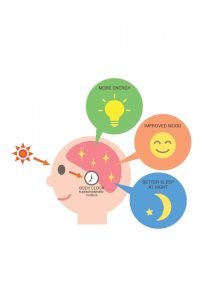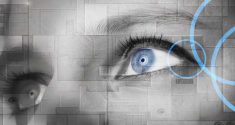Without vision, we would miss out on a variety of experiences. We would have trouble navigating our world and performing certain careers. There are also intangible elements of sight that would be lost, such as seeing the faces of loved ones or appreciating a piece of fine art. However, we are beginning to discover that are our eyes are not only important for sight alone. According to several recent studies on chronobiology and sight, our eyes also play a role in helping to set our internal clocks.
The Many Roles of the Eye

However, these are not the only specialized cells in the eye. We also have specialized structures that detect the general level of light as well as the wavelength of this light. These structures send this information to a very different area of the brain, the suprachiasmatic nucleus (SCN) of the hypothalamus. This helps our brain to adjust and set our internal clocks so our sleep schedule mirrors that of the world around us. Messages about the time of day are then sent throughout the body so our organ systems can synchronize.
Although our circadian rhythms are innate, we still need to align our clocks with those of the world around us. Our eyes help to keep our internal clocks in sync with our schedules so we can live our best lives. In addition, a growing body of evidence suggests that we are at higher risk of a variety of diseases without well-regulated internal clocks.
New Research on Chronobiology and Sight
Our eyes were clearly made to do a great deal more than merely help us to see. They also act as a sort of light meter, helping us to adjust our circadian rhythm to the world around us. This is important because new research suggests that the human circadian rhythm is not naturally a 24-hours rhythm.
For reasons that scientists do not fully understand, our brains do not naturally work on a 24-hour sleep-wake cycle. In order to comfortably live on such a schedule, we must rely on light cues that tell our brain how to adjust.
How do people with blindness or failing eyes adjust? Several studies have suggested that this is a major health issue for people with vision problems. More than 70 percent of people with blindness have non-24 hour sleep disorder, a condition in which their circadian rhythms do not line up with the 24-hour day of our planet.
Circadian Challenges for People with Reduced Vision
People with blindness, vision problems, and other sight disabilities are more prone to a variety of problems with their internal clocks. People with common vision issues such as myopia are even more prone to circadian disorders.
Myopia, also known as nearsightedness, is a common problem. People with this sight disorder have trouble seeing things that are far away. It is almost always corrected with glasses or contacts. The rates of myopia have been increasing sharply over the past decades, but this is generally not considered a public concern. Because myopia is most commonly treated with a simple pair of glasses, it is not considered a health hazard.
Myopia is not generally considered a big deal due to its mild effects and how easily it is treated. However, several new studies suggest that it can affect the way you sleep. People with myopia have higher rates of melatonin, a hormone most commonly associated with sleep. This suggests that their eyes are not performing as well in their secondary role of circadian entrainment. In short, because of the relationship between chronobiology and sight, people with this common sight disorder may not be managing their internal clocks as well as others.
Sleep, Clocks, and Health

If you have a vision disorder of any kind, even something as simple as myopia, you may need a little help to keep your internal clocks on track. Consider simple lifestyle measures such as getting plenty of light throughout your day or taking a melatonin supplement at night. Even a few simple changes may help you to keep your clocks ticking on time and enjoy a well-regulated sleep schedule.







